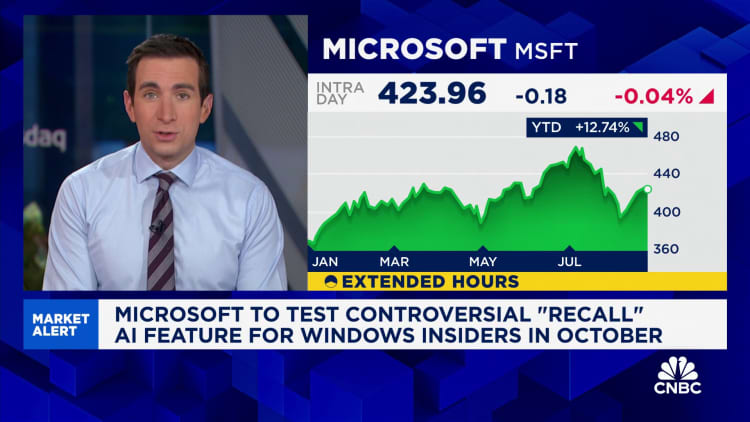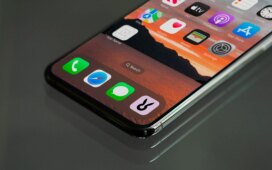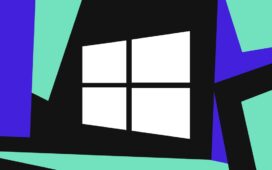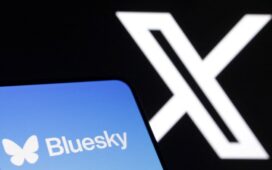Microsoft’s Recall feature is available for testing for people with Copilot+ PCs containing Qualcomm Snapdragon chips.
Jordan Novet | CNBC
Microsoft on Friday started letting people test Recall, its so-called photographic memory search feature for the latest Copilot+ PCs. It doesn’t work perfectly, based on an initial evaluation.
It’s also a long time coming. Microsoft first touted Recall in May as a prominent feature that would only be available for cutting-edge Copilot+ PCs running the Windows 11 operating system, like the latest Surface Pro. Executives said Recall would use artificial intelligence to take screenshots of your computer screen as you use it, so you can later use keywords to search for words or objects that are present in images you’ve previously seen.
A backlash from cybersecurity experts about the potential risks of Recall, however, led Microsoft to revamp it. The company encrypted Recall’s underlying database and set the feature to be turned off by default. In August, Microsoft said Recall would reach testers in October.
Now the feature is available for certain Copilot+ users. Those whose computers contain Qualcomm Snapdragon chips and neural processing units for AI tasks can download and install a build that comes with Recall. PCs must be enrolled in the dev channel of the Windows Insider Program to be eligible. Copilot+ PCs with AMD or Intel chips are out of luck for now.
Microsoft issues pre-release software like this to let early adopters try things out, so it can address shortcomings before they get to the general public. Recall won’t work with some accessibility programs, and if you specify that Recall shouldn’t save content from a given website, it might get captured anyway while using the built-in Edge browser, according to a blog post.
Those aren’t the only issues. Here are more problems I noticed:
- While you might expect that your computer will be recording every last thing you look at once you’ve turned on Recall, it can go several minutes between making snapshots, leaving gaps in the timeline.
- Recall allows you to prevent screenshots from being made when you’re accessing specific apps. But a few apps installed on my Surface Pro are not shown on that list.
- When you enter a search string to find words, results might be incomplete or incorrect. Recall clearly had two screen images that mention “Yankees,” but when I typed that into the search box, only one of them came up as a text match. I typed in my last name, which appeared in eight images, but Recall produced just two text matches.
- Recall made a screenshot while I was scrolling through posts on social network BlueSky, and one contains a photo of a New York street scene. You can see a stoplight, a smokestack and street signs. I typed each of those into the search box, but Recall came up with no results. Even after trying slightly different terms like “light” or “sign,” Recall still failed to show me what I was looking for. However, Recall did bring up the screenshot when I typed “one way.”
- The search function is fast, but flipping through snapshots in Recall is not. It can take a couple of seconds to load screenshots as you swipe between them.
Microsoft did not immediately provide a comment for this article.
Despite the early issues, Recall can be helpful and interesting when it does turn up positive results. And when you’d like to get back to the app or web link you were viewing at the time of the screenshot, clicking a button below the image will take you right back to that moment in time.
WATCH: Microsoft to release controversial Windows Recall AI search feature to testers in October









